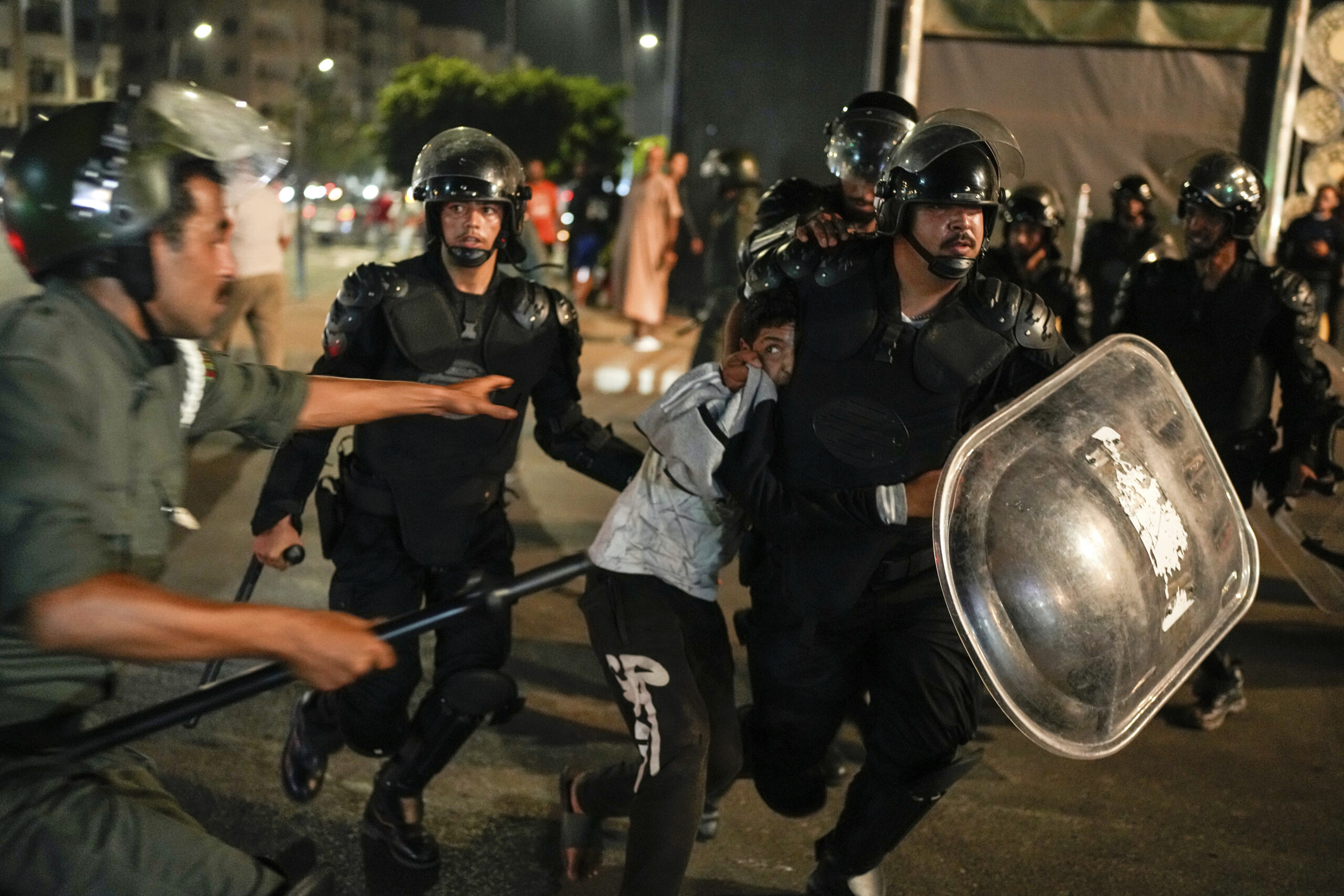
A boy is detained as youth led protests calling for healthcare and education reforms turned violent, in Sale, Morocco, Wednesday, Oct. 1, 2025. (AP Photo/Mosa'ab Elshamy)
A video circulating on social media has reignited debate over police brutality in Morocco.
It shows two uniformed officers violently restraining a man behind a parked car, striking him with a baton and kicking him as he screams, demanding to know the reason for his arrest.
The footage has shocked viewers, highlighting concerns over law enforcement practices in the kingdom.
The General Directorate of National Security (DGSN) announced the opening of an investigation by the General Inspectorate to verify the authenticity of the images, identify potential offenses, and determine responsibilities.
However, critics question whether this is an isolated incident or evidence of a broader culture of systemic violence within Moroccan policing.
Observers argue that police force in Morocco is deeply intertwined with the country’s monarchical system, serving as a tool to protect institutional power rather than citizens. “Behind the uniform and the blows, there is the heavy shadow of the royal palace.
The police, supposed to protect the population, protect first and foremost a system,” said one analyst, pointing to a regime that centralizes executive, legislative, religious, and economic authority.
Beyond physical repression, critics highlight the structural inequality and concentration of wealth in Morocco.
The royal family’s fortune, estimated in billions of dollars, contrasts starkly with widespread poverty and underfunded public services, fueling social frustration. Institutional corruption, arbitrary arrests, and limitations on press freedom amplify the perception of systemic injustice.
Experts stress that police violence is not accidental but a strategic method to instil fear, contain dissent, and maintain control. While poor pay and limited training for officers are often cited as mitigating factors, these fail to excuse abuses or the broader context of authoritarian oversight.
Calls for reform have intensified, with advocates demanding a professional, accountable police force that respects fundamental rights. “We will not reform the police without reforming the regime,” critics argue.
The man in the video has become a symbol of the thousands affected by systemic repression, a stark reminder of the tension between authority and fear in Moroccan society.
As public debate grows, questions remain over how Morocco can reconcile law enforcement practices with human rights and social justice, and whether systemic reforms are on the horizon.



